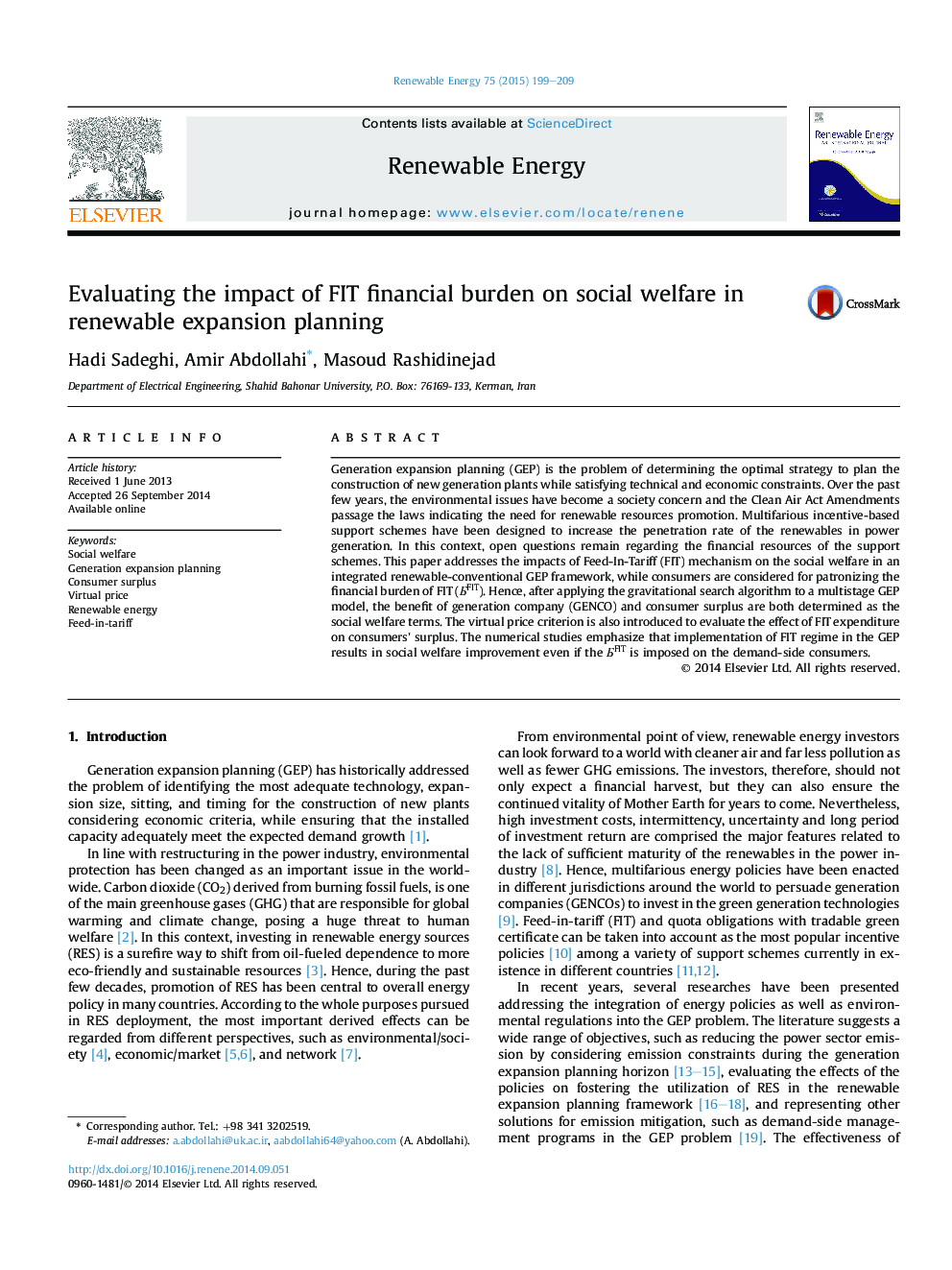| Article ID | Journal | Published Year | Pages | File Type |
|---|---|---|---|---|
| 6767738 | Renewable Energy | 2015 | 11 Pages |
Abstract
Generation expansion planning (GEP) is the problem of determining the optimal strategy to plan the construction of new generation plants while satisfying technical and economic constraints. Over the past few years, the environmental issues have become a society concern and the Clean Air Act Amendments passage the laws indicating the need for renewable resources promotion. Multifarious incentive-based support schemes have been designed to increase the penetration rate of the renewables in power generation. In this context, open questions remain regarding the financial resources of the support schemes. This paper addresses the impacts of Feed-In-Tariff (FIT) mechanism on the social welfare in an integrated renewable-conventional GEP framework, while consumers are considered for patronizing the financial burden of FIT (ÐFIT). Hence, after applying the gravitational search algorithm to a multistage GEP model, the benefit of generation company (GENCO) and consumer surplus are both determined as the social welfare terms. The virtual price criterion is also introduced to evaluate the effect of FIT expenditure on consumers' surplus. The numerical studies emphasize that implementation of FIT regime in the GEP results in social welfare improvement even if the ÐFIT is imposed on the demand-side consumers.
Related Topics
Physical Sciences and Engineering
Energy
Renewable Energy, Sustainability and the Environment
Authors
Hadi Sadeghi, Amir Abdollahi, Masoud Rashidinejad,
